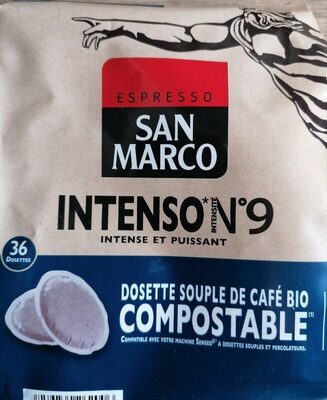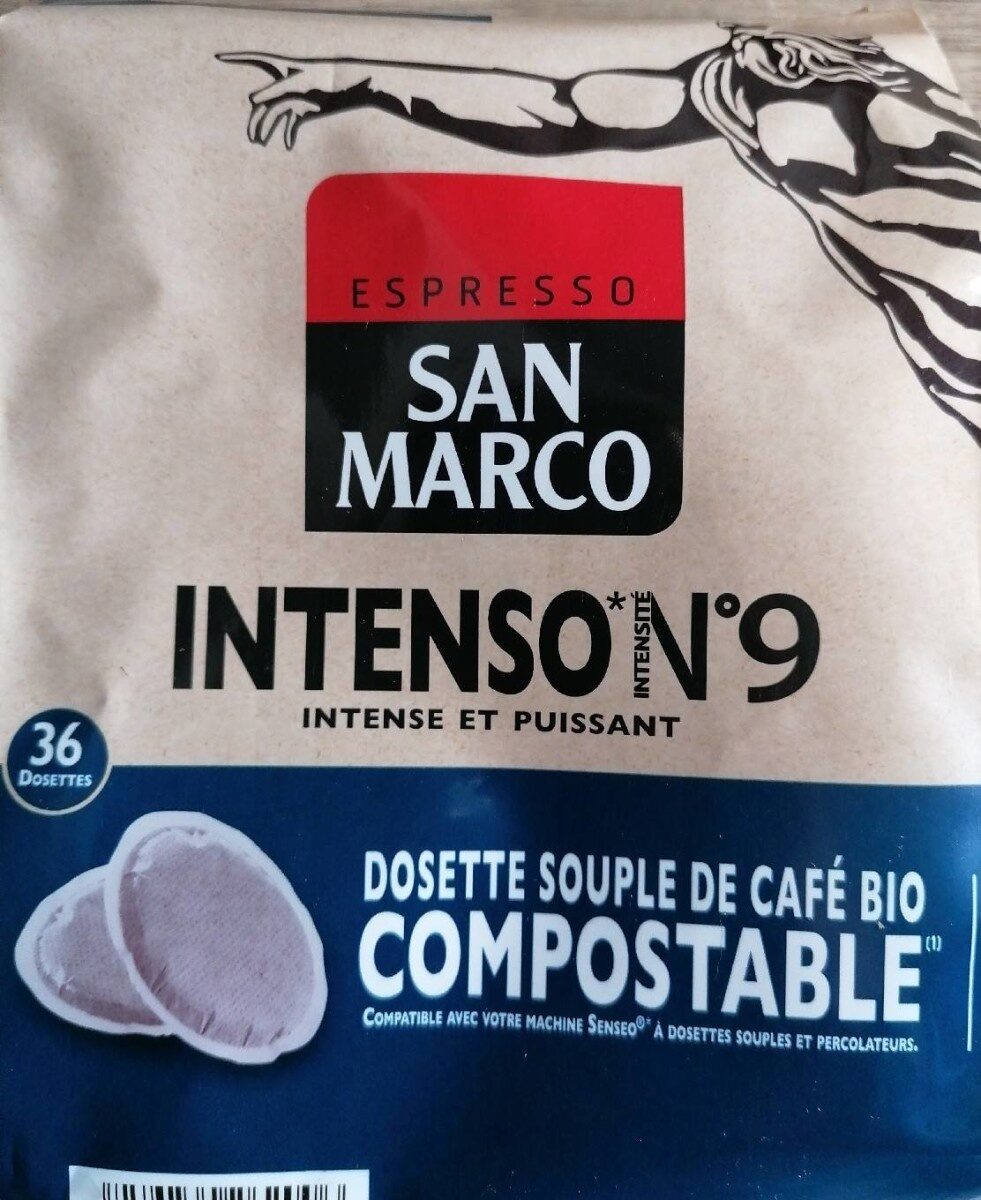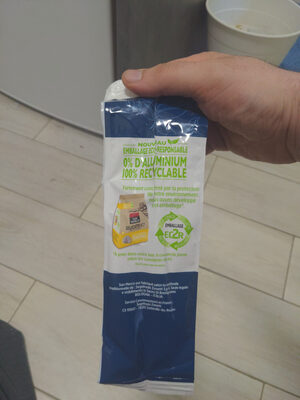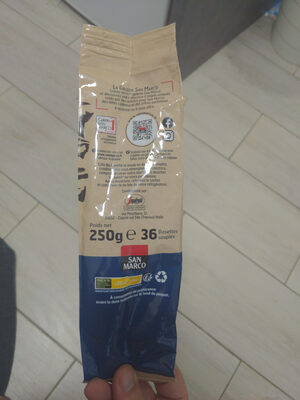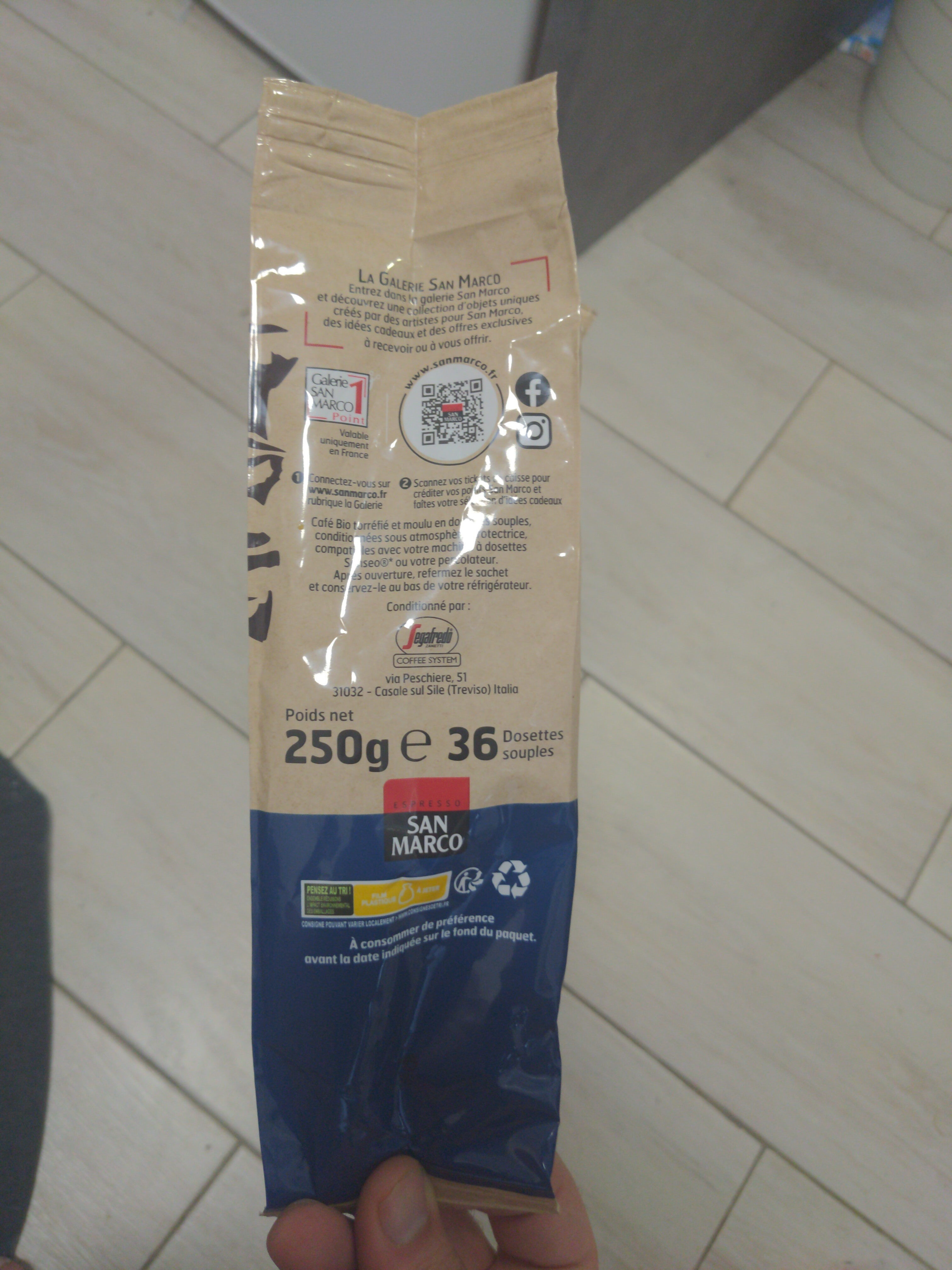Espresso n°9 - San Marco - 250 g
This product page is not complete. You can help to complete it by editing it and adding more data from the photos we have, or by taking more photos using the app for Android or iPhone/iPad. Thank you!
×
Barcode: 3259234262006 (EAN / EAN-13)
Quantity: 250 g
Brands: San Marco
Categories: Plant-based foods and beverages, Beverages, Plant-based foods, Hot beverages, Coffees, Capsules, Coffee capsules, Senseo-compatible coffee capsules
Labels, certifications, awards:
Organic, EU Organic, IT-BIO-007
Origin of ingredients: Non European Union
Stores: carrefour.fr
Countries where sold: France
Matching with your preferences
Report a problem
Data sources
Product added on by hungergames
Last edit of product page on by chevalstar.
Product page also edited by driveoff, kiliweb, openfoodfacts-contributors, teolemon, yuka.sY2b0xO6T85zoF3NwEKvlm5DccPV-xvPbEznh3-a6cyRLKfIOeF95pqlLas.
